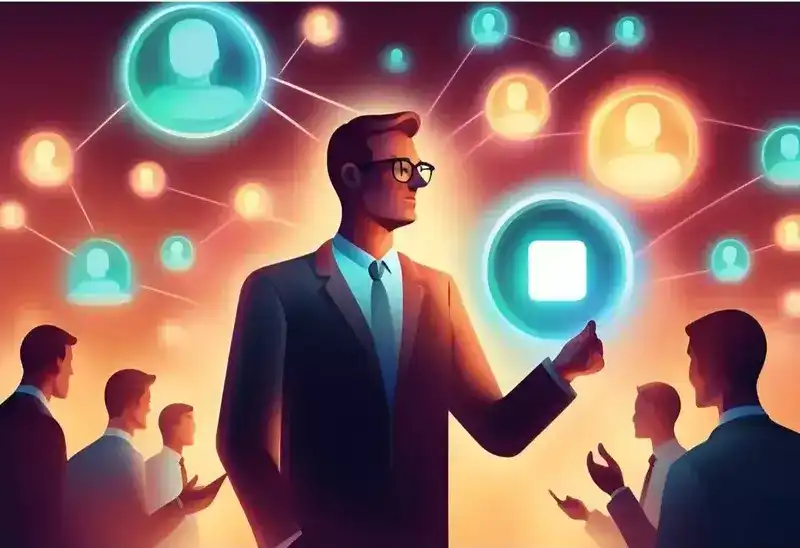
In today’s rapidly evolving business landscape, companies are continuously seeking innovative solutions to stay ahead of the curve. One such groundbreaking technology is ChatGPT, an advanced AI language model developed by OpenAI. ChatGPT in Business has the potential to revolutionize various aspects of business operations and strategies. It enhances efficiency and drives growth. This article explores how businesses can leverage ChatGPT to optimize different functions and gain a competitive edge.
1. Customer Support and Service
Businesses use ChatGPT to make customer support much better. ChatGPT answers many customer questions at the same time, giving quick and correct answers. This means customers don’t wait long, and human workers help with more tricky problems. For example, ChatGPT:
- Answers Common Questions: ChatGPT handles questions like store hours or how to reset a password.
- Guides Customers: ChatGPT helps customers solve problems with products.
- Processes Returns: ChatGPT helps customers return items or exchange them.
2. Sales and Lead Generation
Sales teams use ChatGPT in Business to find and talk to new customers. ChatGPT chats with visitors on websites or social media, learning what they need. This helps sales teams find good leads who might buy products. ChatGPT also gives advice and keeps talking to potential customers, making them more likely to buy.

3. Business Intelligence and Data Analysis
ChatGPT helps businesses understand data and make smart choices. It looks at lots of information, finds patterns, and creates reports. This helps businesses see where they can improve and grow. For example, ChatGPT:
- Analyzes Customer Feedback: ChatGPT looks at what customers are saying to find ways to make products better.
- Studies Sales Data: ChatGPT finds trends in sales to help make better decisions.
- Reviews Market Trends: ChatGPT sees what’s happening in the market to spot new chances for growth.
4. Content Creation and Marketing
Creating good content is key for marketing. ChatGPT in Business helps write blog posts, social media updates, and emails. It makes sure the content is interesting and fits the brand’s style. ChatGPT also helps come up with new content ideas and improve SEO strategies, making marketing messages more personal and targeted. Notwithstanding, ChatGPT does have some challenges in its use for Content Marketing.
5. Human Resources and Recruitment
ChatGPT makes HR tasks faster and easier. During hiring, ChatGPT checks resumes, schedules interviews, and even does first-round assessments. This speeds up hiring and picks the best candidates. ChatGPT also helps new employees by giving them information and answering questions. It manages leave requests and provides training resources too. There are some Challenges of using ChatGPT in HR.
6. Virtual Assistants for Executives
Executives have busy schedules. ChatGPT acts as a virtual assistant, helping manage tasks like:
- Scheduling Meetings: ChatGPT sets up and reminds executives about meetings.
- Organizing Emails: ChatGPT sorts and prioritizes emails.
- Facilitating Communication: ChatGPT helps executives stay in touch with their teams.
This frees up time for executives to focus on big decisions and leadership.
7. Financial Services and Banking
In finance, ChatGPT helps by:
- Providing Instant Support: ChatGPT answers questions about banking and transactions quickly.
- Detecting Fraud: ChatGPT watches for unusual activity and alerts customers and banks.
- Offering Financial Advice: ChatGPT helps analyze market trends and gives investment tips.
8. Supply Chain Management
ChatGPT in Business improves supply chain management by:
- Monitoring Inventory: ChatGPT keeps track of stock levels and orders more when supplies are low.
- Predicting Demand: ChatGPT helps predict what products will be needed and when.
- Improving Logistics: ChatGPT helps plan the best ways to move products.

9. Innovation and Product Development
Innovation is important for staying competitive. ChatGPT in Business helps by:
- Facilitating Brainstorming: ChatGPT helps generate new ideas.
- Conducting Market Research: ChatGPT looks at what customers want.
- Analyzing Feedback: ChatGPT sees what customers think of products and suggests improvements.
10. Legal and Compliance
ChatGPT in Business assists with legal work by:
- Drafting Contracts: ChatGPT helps write legal documents.
- Reviewing Documents: ChatGPT checks legal papers for issues.
- Ensuring Compliance: ChatGPT monitors business practices to meet legal standards.
11. Training and Development
Training helps employees grow. ChatGPT in Business delivers training by:
- Providing Resources: ChatGPT offers learning materials.
- Tracking Progress: ChatGPT monitors how employees are doing.
- Offering Feedback: ChatGPT advises on how to improve.
12. Ethical and Security Considerations
Using ChatGPT in Business responsibly is important. Businesses should:
- Protect Data: Keep customer information safe.
- Be Transparent: Let customers know when they are talking to ChatGPT.
- Ensure Fairness: Make sure ChatGPT treats everyone equally.
- Address Bias: Work to reduce any bias in the AI.
13. Future Trends and Predictions
ChatGPT’s future in business looks bright. We can expect:
- Better Understanding: ChatGPT will understand language even better.
- Improved Personalization: ChatGPT will give more personalized help.
- More Integration: ChatGPT will work with more technologies.
14. Implementation Strategies and Tips
To use ChatGPT well, businesses should:
- Identify Key Areas: Find where ChatGPT can help the most.
- Pilot Programs: Test ChatGPT in small areas first.
- Integration: Connect ChatGPT with current systems.
- Training: Teach employees how to use ChatGPT.
- Feedback: Collect feedback and improve ChatGPT.
- Security: Protect data with strong security measures.
- Ethics: Be clear about ChatGPT use and handle ethical issues.
Conclusion
ChatGPT can transform business by boosting efficiency and helping with strategy. It improves customer service, helps sales and marketing, streamlines HR, and provides data insights. It also supports innovation, legal compliance, and training. However, businesses must use ChatGPT responsibly, considering ethical and security issues. As AI evolves, ChatGPT will play an even bigger role in business, offering new opportunities for growth and success.


